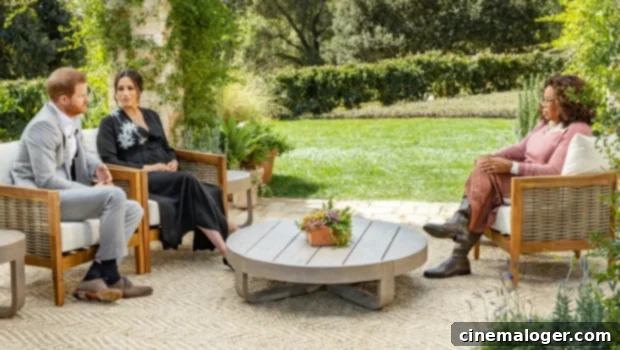The Unveiling: Meghan Markle, Prince Harry, and the Royal Revelations in Their Landmark Oprah Interview
In a global television event that sent shockwaves across continents, Meghan Markle and Prince Harry sat down with talk show icon Oprah Winfrey for an exclusive, no-holds-barred interview. Aired on CBS on March 7, this two-hour primetime special promised — and delivered — an unprecedented glimpse into the lives and struggles of the Duke and Duchess of Sussex, particularly since their decision to step back from their roles as senior members of the British Royal Family. The interview became an immediate cultural phenomenon, sparking intense debate and shedding light on the immense pressures, both internal and external, faced by the couple.
The Crying Revelation: A Royal Narrative Upended
One of the most startling revelations from the interview involved a long-standing tabloid story concerning Meghan Markle and her sister-in-law, Kate Middleton, the Duchess of Cambridge. For years, media outlets had widely reported that Meghan had made Kate cry during a disagreement over flower girl dresses in the days leading up to Meghan’s highly anticipated May 2018 wedding to Prince Harry. This narrative had contributed significantly to a public perception of Meghan as difficult or demanding. However, Meghan, with remarkable candor, completely overturned this established story.
Addressing Oprah directly, Meghan stated emphatically, “No [I did not make Kate cry]… The reverse happened.” She elaborated, describing a challenging week leading up to the wedding where Kate was indeed upset about something related to the flower girl dresses. This disagreement, Meghan clarified, resulted in her own tears. “And it made me cry and it really hurt my feelings,” she recounted. The Duchess of Sussex further revealed that, following the incident, Kate had taken accountability for her actions. “She owned it and she apologized and she brought me flowers and a note apologizing, which is what I would do if I knew that I hurt someone… just take accountability for it,” Meghan explained, highlighting an important gesture of reconciliation that had remained private.
The true shock, according to Meghan, was not the incident itself, but the subsequent media portrayal. “What was shocking was…six or seven months after our wedding that the reverse of that would be out in the world,” she shared. Meghan expressed her disappointment and sense of betrayal that the true story was never told, especially since she had actively protected Kate’s privacy. “I would’ve never wanted that to come out about her, ever, even though it had happened. I protected that from ever being out in the world.” This segment of the interview highlighted the often-distorted nature of royal reporting and the impact it had on Meghan’s reputation and relationships within the family.
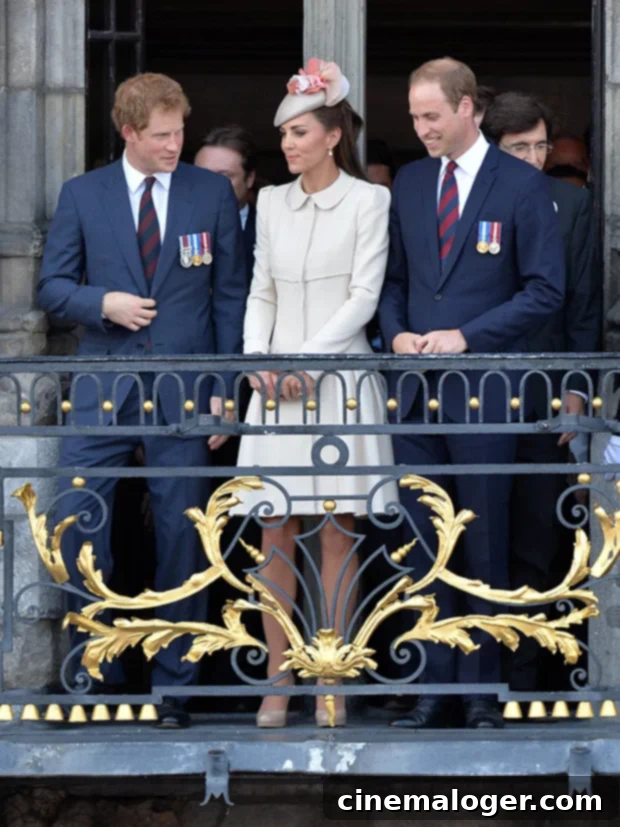
The Weight of Royal Life and Harry’s Protective Instincts
The interview was not just about specific incidents but also about the broader experience of navigating royal life, especially for an “outsider” like Meghan. Prince Harry’s perspective offered crucial context, particularly his deeply personal connection to the challenges faced by his late mother, Princess Diana. Harry vividly recalled the tragic circumstances of Diana’s death in August 1997, when she was pursued by paparazzi in Paris. He was just 12 years old when his mother died, an event that profoundly shaped his views on the media and the monarchy.
In a poignant moment, Harry told Oprah, “For me, I’m just really relieved and happy to be sitting here talking to you with my wife by my side, because I can’t begin to imagine what it must have been like for her going through this process by herself all those years ago. Because it’s been unbelievably tough for the two of us, but at least we have each other.” This statement underscored his primary motivation for stepping back from royal duties: to protect his wife and their growing family from what he perceived as a relentless and often hostile media environment, echoing the pressures that ultimately overwhelmed his mother.
Princess Diana famously grappled with the intense scrutiny of the press, at times engaging with them but often feeling hounded and unfairly criticized. Her tumultuous relationship with the paparazzi and the constant public gaze made her life exceptionally difficult. Harry’s fear of history repeating itself, particularly as Meghan faced increasing negative press coverage and intense scrutiny, was a powerful underlying theme of the interview. His determination to ensure Meghan did not face the same isolation and relentless pressure that Diana did offered a profound insight into his actions and decisions.
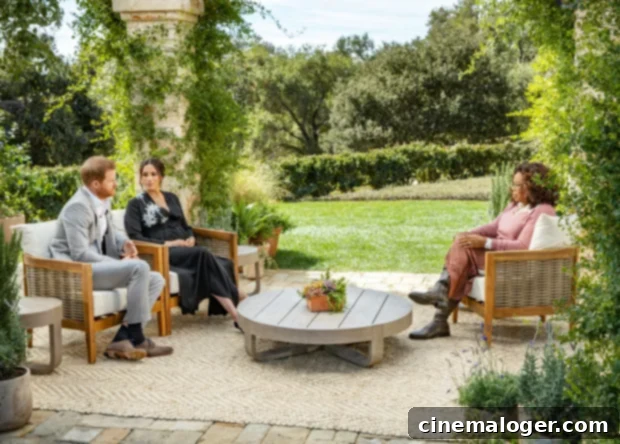
Accusations Against “The Firm” and the Perpetuation of Falsehoods
Beyond personal anecdotes, the interview ventured into more systemic criticisms of the monarchy as an institution. Meghan, who was pregnant with the couple’s second child at the time of the interview, dropped another bombshell by accusing the royal establishment of actively contributing to negative narratives about them. When asked by Oprah how she felt “about the Palace hearing” her speak her “truth,” Meghan’s response was pointed:
“I don’t know how they could expect that, after all of this time, we would still just be silent if there is an active role that The Firm is playing in perpetuating falsehoods about us.”
This statement was a direct challenge to the powerful and often inscrutable entity known as “The Firm,” a long-standing nickname for the Royal Family institution. Originating, it is believed, with Prince Philip, the Duke of Edinburgh, the term refers to the royal household as a business, with its members acting as executives. As royal author Penny Junor explained in her book, The Firm: The Troubled Life of the House of Windsor, “Prince Philip calls it ‘The Firm,’ and all the royal executives and their powerful associates are supposed to make every effort to avoid even a hint of scandal that could diminish the reputation of the family business.” Meghan’s accusation suggested that “The Firm” was not merely passive in the face of negative press but was actively involved in disseminating or allowing to be disseminated information that was untrue or damaging to the couple.
This candid exposure of internal conflicts and alleged institutional complicity represented a significant departure from the traditional royal approach of “never complain, never explain.” It highlighted a perceived lack of support and protection from the institution that Meghan and Harry had expected, particularly concerning issues of mental health and racist undertones in some media coverage, which were also discussed at length during the interview.
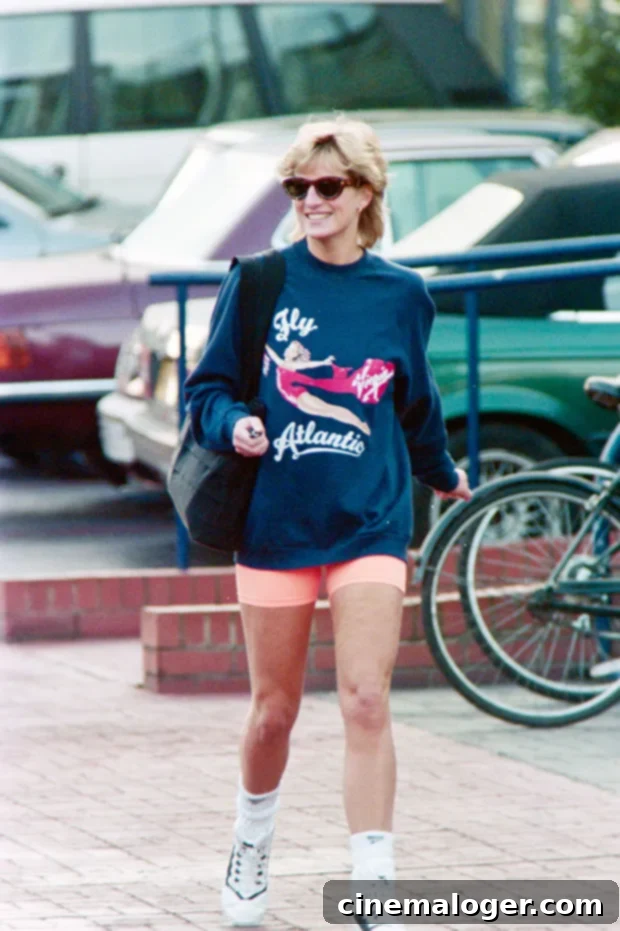
The Bullying Allegations and the Battle of Narratives
The lead-up to the Oprah interview was itself fraught with escalating tensions and competing narratives. Amid the release of compelling preview clips, The Timesof London published a report on March 2, just days before the interview aired, alleging that Meghan Markle had “faced a bullying complaint” by one of her former aides at Kensington Palace in October 2018. The report claimed that Meghan had “drove two personal assistants out of the household and was undermining the confidence of a third staff member.” This timing was highly scrutinized, with many speculating it was a pre-emptive strike to discredit Meghan before her truth-telling interview.
Buckingham Palace swiftly announced an investigation into the matter, stating it took allegations of bullying “very seriously.” However, a spokesperson for the Duke and Duchess of Sussex vehemently denied the allegations, releasing a statement that read, in part: “The Duchess is saddened by this latest attack on her character, particularly as someone who has been the target of bullying herself and is deeply committed to supporting those who have experienced pain and trauma.” This rebuttal framed the allegations as another instance of a coordinated effort to undermine Meghan, adding another layer of complexity to the public perception of the couple and the institution.
This exchange highlighted the stark division and the ongoing “war of narratives” between the Sussexes and the Palace, played out through the media on both sides of the Atlantic. Each claim and counter-claim further solidified the idea that deep-seated issues and unresolved tensions lay beneath the surface of the seemingly serene royal exterior. The bullying allegations served as a stark example of the institutional mechanisms at play, and how information could be weaponized amidst a family rift. It underscored the point that while the Sussexes sought to control their own narrative, the Palace and its associated networks were equally capable of shaping public opinion.
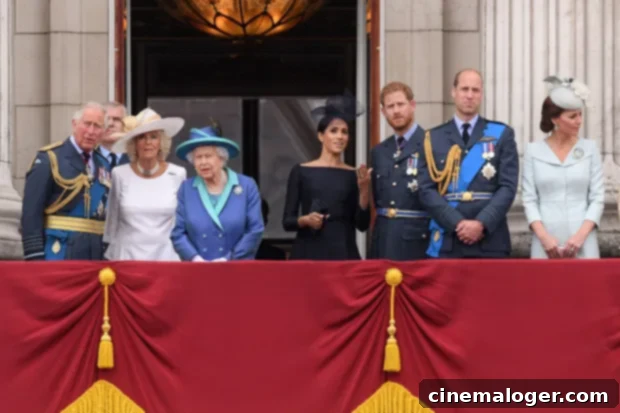
Global Impact and Lingering Questions
The Oprah with Meghan and Harry: A Primetime Special was more than just an interview; it was a cultural flashpoint that ignited conversations about race, mental health, the media’s role, and the future of the monarchy. It aired to massive audiences in the U.S. and was subsequently broadcast in the U.K. on ITV on Monday, March 8, attracting millions more viewers and dominating headlines for weeks.
The interview forced a global reckoning with the realities of modern royalty, demonstrating the immense power of personal narrative against institutional silence. It highlighted the challenges faced by individuals attempting to navigate traditions spanning centuries while also confronting contemporary issues. The revelations from Meghan and Harry left an indelible mark, prompting introspection not just within the Royal Family but also among the public and media outlets worldwide.
While the interview provided answers to many questions about the Sussexes’ departure and their experiences, it also raised new ones. The long-term implications for the British monarchy, the ongoing relationship between Harry and his family, and the way Meghan’s story is remembered remain subjects of intense public interest and debate. The Oprah interview stands as a pivotal moment, forever altering the narrative around Meghan and Harry and reshaping perceptions of the Royal Family in the 21st century.
In response to allegations of bullying made by palace aides to The Times, a spokesperson for the Duke and Duchess of Sussex says: https://t.co/tycXEGInll pic.twitter.com/cEuPHQrpXl
— Omid Scobie (@scobie) March 2, 2021
